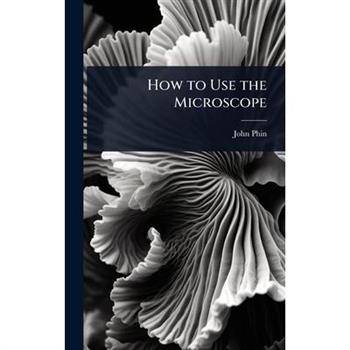Guiding Waves in Quantum Mechanics
The pilot-wave theory developed by de Broglie and Bohm has a special place in the history of contemporary physics, being the very first alternative formulation of quantum mechanics. As is well-known, such a framework established itself as a leading interpretation of the quantum formalism, representing a solution to the major technical and conceptual challenges affecting the orthodox view. Indeed, the de Broglie-Bohm theory not only solves the famous measurement problem, one of the most cogent issues faced by standard quantum mechanics, but it also clarifies the formal structure of the latter theory as a consequence of a consistent set of principles and a precise, unambiguous ontology. This volume aims to provide the reader with a discussion of the pilot-wave perspective, which is as informative, comprehensive and accessible as possible, while at the same time clarifying confusions and misunderstandings that are unfortunately still common, despite the long history of this theoretical framework. The book features chapters about the various perspectives on the pilot-wave theory, its extensions to relativity and quantum field theory, and its experimental applications to various branches of physics, such as quantum electrodynamics, quantum chemistry, and quantum engineering. Moreover, the volume includes essays on the history and philosophy of the de Broglie-Bohm theory in order to delineate its developments and the vicissitudes of its pioneers, as well as to understand the scientific image of the universe it provides.
Guerrilla Ecologies
This book intervenes in contemporary debates about climate activism, militancy and strategy. It will attract scholarly readers from diverse spaces in the environmental humanities, environmental and climate justice, radical ecology and philosophy.
Individual Differences and Family Resemblances in Animal Behavior, a Study of Habit Formation in Various Strains of Mice
"Individual Differences and Family Resemblances in Animal Behavior" by Halsey Joseph Bagg explores the genetic basis of behavior in mice. This study delves into the variations in habit formation among different strains of mice, providing insights into the interplay between genetics and learned behaviors. Bagg's research contributes to the field of comparative psychology by examining individual differences within animal populations.The book presents a detailed investigation of how hereditary factors influence behavioral traits, offering valuable data for researchers in genetics, animal behavior, and psychology. This work is a significant resource for understanding the complexities of nature versus nurture in shaping animal behavior.This work has been selected by scholars as being culturally important, and is part of the knowledge base of civilization as we know it. This work was reproduced from the original artifact, and remains as true to the original work as possible. Therefore, you will see the original copyright references, library stamps (as most of these works have been housed in our most important libraries around the world), and other notations in the work.This work is in the public domain in the United States of America, and possibly other nations. Within the United States, you may freely copy and distribute this work, as no entity (individual or corporate) has a copyright on the body of the work.As a reproduction of a historical artifact, this work may contain missing or blurred pages, poor pictures, errant marks, etc. Scholars believe, and we concur, that this work is important enough to be preserved, reproduced, and made generally available to the public. We appreciate your support of the preservation process, and thank you for being an important part of keeping this knowledge alive and relevant.
First Principles of Natural Philosophy. A Text-book for Common Schools
"First Principles of Natural Philosophy" by Elroy McKendree Avery offers a comprehensive exploration of foundational scientific concepts, designed specifically for use in common schools. Originally published in the late 19th century, this text-book provides a structured approach to understanding the fundamental laws governing the natural world. It delves into topics such as matter, motion, forces, and energy, presenting them in a manner accessible to students of the time. Avery's work not only serves as a valuable resource for historical insights into science education but also highlights the enduring relevance of natural philosophy. This edition makes the content available to a new generation of readers interested in the roots of scientific thought and the methods of instruction employed in earlier educational systems. It is a significant contribution to the history of science and pedagogy.This work has been selected by scholars as being culturally important, and is part of the knowledge base of civilization as we know it. This work was reproduced from the original artifact, and remains as true to the original work as possible. Therefore, you will see the original copyright references, library stamps (as most of these works have been housed in our most important libraries around the world), and other notations in the work.This work is in the public domain in the United States of America, and possibly other nations. Within the United States, you may freely copy and distribute this work, as no entity (individual or corporate) has a copyright on the body of the work.As a reproduction of a historical artifact, this work may contain missing or blurred pages, poor pictures, errant marks, etc. Scholars believe, and we concur, that this work is important enough to be preserved, reproduced, and made generally available to the public. We appreciate your support of the preservation process, and thank you for being an important part of keeping this knowledge alive and relevant.
Fungus Diseases Of Stone-fruit Trees In Australia And Their Treatment
"Fungus Diseases Of Stone-fruit Trees In Australia And Their Treatment" is a comprehensive guide by Daniel McAlpine, detailing the various fungal diseases affecting stone-fruit trees in Australia. This practical manual offers detailed insights into identifying, understanding, and treating these diseases, aiming to equip orchardists and agricultural professionals with the knowledge needed to protect their crops. The book delves into the specific characteristics of each disease, their lifecycle, and effective treatment methods available at the time of publication.This book is an invaluable resource for those involved in the cultivation of stone-fruit trees in Australia, providing a historical perspective on agricultural practices and disease management. Its enduring value lies in its detailed observations and practical advice, making it a relevant reference for researchers and practitioners interested in the history of agricultural science and the evolution of plant pathology.This work has been selected by scholars as being culturally important, and is part of the knowledge base of civilization as we know it. This work was reproduced from the original artifact, and remains as true to the original work as possible. Therefore, you will see the original copyright references, library stamps (as most of these works have been housed in our most important libraries around the world), and other notations in the work.This work is in the public domain in the United States of America, and possibly other nations. Within the United States, you may freely copy and distribute this work, as no entity (individual or corporate) has a copyright on the body of the work.As a reproduction of a historical artifact, this work may contain missing or blurred pages, poor pictures, errant marks, etc. Scholars believe, and we concur, that this work is important enough to be preserved, reproduced, and made generally available to the public. We appreciate your support of the preservation process, and thank you for being an important part of keeping this knowledge alive and relevant.
Science Year by Year
This epic journey of scientific discovery starts in ancient times and travels through centuries of invention before fast forwarding into the future. From simple machines to modern-day marvels, you'll follow incredible illustrated timelines that plot the entire history of science and highlight the most momentous discoveries. A jaw-dropping collection of more than 1,500 photographs, illustrations, maps, and graphics charts the evolution of science year by year, century by century. You'll meet influential inventors and famous faces from the past, including Aristotle, Leonardo da Vinci, Isaac Newton, Charles Darwin, Marie Curie, and Stephen Hawking. You'll visit places of scientific importance, such as prehistoric cave art, Stonehenge, Hiroshima and the first atomic bomb, the Moon landings, and the Higgs boson particle. These huge events are made simple thanks to eye-catching images, helpful timelines, and accessible, informative text. Landmark people and periods are combined in this one stunning volume for children, showcasing the ideas, experiments, and technologies that have shaped our daily lives and transformed the world today. Aspiring scientists, get ready for a time traveling trip like no other.
First Principles of Natural Philosophy. A Text-book for Common Schools
"First Principles of Natural Philosophy" by Elroy McKendree Avery offers a comprehensive exploration of foundational scientific concepts, designed specifically for use in common schools. Originally published in the late 19th century, this text-book provides a structured approach to understanding the fundamental laws governing the natural world. It delves into topics such as matter, motion, forces, and energy, presenting them in a manner accessible to students of the time. Avery's work not only serves as a valuable resource for historical insights into science education but also highlights the enduring relevance of natural philosophy. This edition makes the content available to a new generation of readers interested in the roots of scientific thought and the methods of instruction employed in earlier educational systems. It is a significant contribution to the history of science and pedagogy.This work has been selected by scholars as being culturally important, and is part of the knowledge base of civilization as we know it. This work was reproduced from the original artifact, and remains as true to the original work as possible. Therefore, you will see the original copyright references, library stamps (as most of these works have been housed in our most important libraries around the world), and other notations in the work.This work is in the public domain in the United States of America, and possibly other nations. Within the United States, you may freely copy and distribute this work, as no entity (individual or corporate) has a copyright on the body of the work.As a reproduction of a historical artifact, this work may contain missing or blurred pages, poor pictures, errant marks, etc. Scholars believe, and we concur, that this work is important enough to be preserved, reproduced, and made generally available to the public. We appreciate your support of the preservation process, and thank you for being an important part of keeping this knowledge alive and relevant.
Fungus Diseases Of Stone-fruit Trees In Australia And Their Treatment
"Fungus Diseases Of Stone-fruit Trees In Australia And Their Treatment" is a comprehensive guide by Daniel McAlpine, detailing the various fungal diseases affecting stone-fruit trees in Australia. This practical manual offers detailed insights into identifying, understanding, and treating these diseases, aiming to equip orchardists and agricultural professionals with the knowledge needed to protect their crops. The book delves into the specific characteristics of each disease, their lifecycle, and effective treatment methods available at the time of publication.This book is an invaluable resource for those involved in the cultivation of stone-fruit trees in Australia, providing a historical perspective on agricultural practices and disease management. Its enduring value lies in its detailed observations and practical advice, making it a relevant reference for researchers and practitioners interested in the history of agricultural science and the evolution of plant pathology.This work has been selected by scholars as being culturally important, and is part of the knowledge base of civilization as we know it. This work was reproduced from the original artifact, and remains as true to the original work as possible. Therefore, you will see the original copyright references, library stamps (as most of these works have been housed in our most important libraries around the world), and other notations in the work.This work is in the public domain in the United States of America, and possibly other nations. Within the United States, you may freely copy and distribute this work, as no entity (individual or corporate) has a copyright on the body of the work.As a reproduction of a historical artifact, this work may contain missing or blurred pages, poor pictures, errant marks, etc. Scholars believe, and we concur, that this work is important enough to be preserved, reproduced, and made generally available to the public. We appreciate your support of the preservation process, and thank you for being an important part of keeping this knowledge alive and relevant.
The Populist Logic on the Environment
The Populist Logic on the Environment provides a framework that draws from populism's essence to explain populist politicians' approaches to the environment.
Individual Differences and Family Resemblances in Animal Behavior, a Study of Habit Formation in Various Strains of Mice
"Individual Differences and Family Resemblances in Animal Behavior" by Halsey Joseph Bagg explores the genetic basis of behavior in mice. This study delves into the variations in habit formation among different strains of mice, providing insights into the interplay between genetics and learned behaviors. Bagg's research contributes to the field of comparative psychology by examining individual differences within animal populations.The book presents a detailed investigation of how hereditary factors influence behavioral traits, offering valuable data for researchers in genetics, animal behavior, and psychology. This work is a significant resource for understanding the complexities of nature versus nurture in shaping animal behavior.This work has been selected by scholars as being culturally important, and is part of the knowledge base of civilization as we know it. This work was reproduced from the original artifact, and remains as true to the original work as possible. Therefore, you will see the original copyright references, library stamps (as most of these works have been housed in our most important libraries around the world), and other notations in the work.This work is in the public domain in the United States of America, and possibly other nations. Within the United States, you may freely copy and distribute this work, as no entity (individual or corporate) has a copyright on the body of the work.As a reproduction of a historical artifact, this work may contain missing or blurred pages, poor pictures, errant marks, etc. Scholars believe, and we concur, that this work is important enough to be preserved, reproduced, and made generally available to the public. We appreciate your support of the preservation process, and thank you for being an important part of keeping this knowledge alive and relevant.
The National Forest Manual
"The National Forest Manual" is a comprehensive guide from 1913, detailing the regulations set forth by the Secretary of Agriculture and instructions for forest officers. This manual focuses particularly on the management of water power, as per the Act of February 15, 1901, and the regulation of telephone, telegraph, and power transmission lines, in accordance with the Act of March 4, 1911. Issued by the Secretary, it offers vital insights into the early 20th-century practices and policies governing national forests. It serves as an important resource for understanding the historical context of natural resource management and the development of infrastructure within these protected areas.This work has been selected by scholars as being culturally important, and is part of the knowledge base of civilization as we know it. This work was reproduced from the original artifact, and remains as true to the original work as possible. Therefore, you will see the original copyright references, library stamps (as most of these works have been housed in our most important libraries around the world), and other notations in the work.This work is in the public domain in the United States of America, and possibly other nations. Within the United States, you may freely copy and distribute this work, as no entity (individual or corporate) has a copyright on the body of the work.As a reproduction of a historical artifact, this work may contain missing or blurred pages, poor pictures, errant marks, etc. Scholars believe, and we concur, that this work is important enough to be preserved, reproduced, and made generally available to the public. We appreciate your support of the preservation process, and thank you for being an important part of keeping this knowledge alive and relevant.
Tropical Polypores
璽€œTropical Polypores璽€ is a detailed study of polypores, a group of fungi characterized by pores on their underside. Authored by William A. Murrill, this work, originally published in 1915, offers a comprehensive overview of various species found in tropical regions. The book provides descriptions, illustrations, and taxonomic classifications, making it a valuable resource for mycologists, botanists, and students of natural history. Murrill's meticulous research contributes significantly to the understanding of fungal biodiversity. This edition retains the original text and illustrations, ensuring the preservation of historical data and insights into the study of tropical fungi. "Tropical Polypores" remains relevant for researchers and enthusiasts interested in the identification, ecology, and distribution of these fascinating organisms.This work has been selected by scholars as being culturally important, and is part of the knowledge base of civilization as we know it. This work was reproduced from the original artifact, and remains as true to the original work as possible. Therefore, you will see the original copyright references, library stamps (as most of these works have been housed in our most important libraries around the world), and other notations in the work.This work is in the public domain in the United States of America, and possibly other nations. Within the United States, you may freely copy and distribute this work, as no entity (individual or corporate) has a copyright on the body of the work.As a reproduction of a historical artifact, this work may contain missing or blurred pages, poor pictures, errant marks, etc. Scholars believe, and we concur, that this work is important enough to be preserved, reproduced, and made generally available to the public. We appreciate your support of the preservation process, and thank you for being an important part of keeping this knowledge alive and relevant.
Revised Working Plan Report for the Bori Forests
"Revised Working Plan Report for the Bori Forests" documents the management strategies and operational guidelines for the Bori Forest region within the Central Provinces of India. Compiled by the Forest Department, this report likely details aspects such as forest conservation, resource utilization, silvicultural practices, and local community involvement during the early 20th century. It provides a historical snapshot into colonial forestry practices and environmental management approaches implemented in British India. As a record of early conservation efforts, this document offers invaluable insights for researchers, policymakers, and anyone interested in the historical interactions between society and natural resources.This work has been selected by scholars as being culturally important, and is part of the knowledge base of civilization as we know it. This work was reproduced from the original artifact, and remains as true to the original work as possible. Therefore, you will see the original copyright references, library stamps (as most of these works have been housed in our most important libraries around the world), and other notations in the work.This work is in the public domain in the United States of America, and possibly other nations. Within the United States, you may freely copy and distribute this work, as no entity (individual or corporate) has a copyright on the body of the work.As a reproduction of a historical artifact, this work may contain missing or blurred pages, poor pictures, errant marks, etc. Scholars believe, and we concur, that this work is important enough to be preserved, reproduced, and made generally available to the public. We appreciate your support of the preservation process, and thank you for being an important part of keeping this knowledge alive and relevant.
The National Forest Manual
"The National Forest Manual" is a comprehensive guide from 1913, detailing the regulations set forth by the Secretary of Agriculture and instructions for forest officers. This manual focuses particularly on the management of water power, as per the Act of February 15, 1901, and the regulation of telephone, telegraph, and power transmission lines, in accordance with the Act of March 4, 1911. Issued by the Secretary, it offers vital insights into the early 20th-century practices and policies governing national forests. It serves as an important resource for understanding the historical context of natural resource management and the development of infrastructure within these protected areas.This work has been selected by scholars as being culturally important, and is part of the knowledge base of civilization as we know it. This work was reproduced from the original artifact, and remains as true to the original work as possible. Therefore, you will see the original copyright references, library stamps (as most of these works have been housed in our most important libraries around the world), and other notations in the work.This work is in the public domain in the United States of America, and possibly other nations. Within the United States, you may freely copy and distribute this work, as no entity (individual or corporate) has a copyright on the body of the work.As a reproduction of a historical artifact, this work may contain missing or blurred pages, poor pictures, errant marks, etc. Scholars believe, and we concur, that this work is important enough to be preserved, reproduced, and made generally available to the public. We appreciate your support of the preservation process, and thank you for being an important part of keeping this knowledge alive and relevant.
Tropical Polypores
璽€œTropical Polypores璽€ is a detailed study of polypores, a group of fungi characterized by pores on their underside. Authored by William A. Murrill, this work, originally published in 1915, offers a comprehensive overview of various species found in tropical regions. The book provides descriptions, illustrations, and taxonomic classifications, making it a valuable resource for mycologists, botanists, and students of natural history. Murrill's meticulous research contributes significantly to the understanding of fungal biodiversity. This edition retains the original text and illustrations, ensuring the preservation of historical data and insights into the study of tropical fungi. "Tropical Polypores" remains relevant for researchers and enthusiasts interested in the identification, ecology, and distribution of these fascinating organisms.This work has been selected by scholars as being culturally important, and is part of the knowledge base of civilization as we know it. This work was reproduced from the original artifact, and remains as true to the original work as possible. Therefore, you will see the original copyright references, library stamps (as most of these works have been housed in our most important libraries around the world), and other notations in the work.This work is in the public domain in the United States of America, and possibly other nations. Within the United States, you may freely copy and distribute this work, as no entity (individual or corporate) has a copyright on the body of the work.As a reproduction of a historical artifact, this work may contain missing or blurred pages, poor pictures, errant marks, etc. Scholars believe, and we concur, that this work is important enough to be preserved, reproduced, and made generally available to the public. We appreciate your support of the preservation process, and thank you for being an important part of keeping this knowledge alive and relevant.
Revised Working Plan Report for the Bori Forests
"Revised Working Plan Report for the Bori Forests" documents the management strategies and operational guidelines for the Bori Forest region within the Central Provinces of India. Compiled by the Forest Department, this report likely details aspects such as forest conservation, resource utilization, silvicultural practices, and local community involvement during the early 20th century. It provides a historical snapshot into colonial forestry practices and environmental management approaches implemented in British India. As a record of early conservation efforts, this document offers invaluable insights for researchers, policymakers, and anyone interested in the historical interactions between society and natural resources.This work has been selected by scholars as being culturally important, and is part of the knowledge base of civilization as we know it. This work was reproduced from the original artifact, and remains as true to the original work as possible. Therefore, you will see the original copyright references, library stamps (as most of these works have been housed in our most important libraries around the world), and other notations in the work.This work is in the public domain in the United States of America, and possibly other nations. Within the United States, you may freely copy and distribute this work, as no entity (individual or corporate) has a copyright on the body of the work.As a reproduction of a historical artifact, this work may contain missing or blurred pages, poor pictures, errant marks, etc. Scholars believe, and we concur, that this work is important enough to be preserved, reproduced, and made generally available to the public. We appreciate your support of the preservation process, and thank you for being an important part of keeping this knowledge alive and relevant.
How to Use the Microscope
How to Use the Microscope, originally published in 1882, is a comprehensive guide to using and understanding the microscope. Written by John Phin, this book provides detailed instructions and practical advice for both beginners and experienced users. It covers various aspects of microscopy, including the selection of appropriate instruments, specimen preparation, illumination techniques, and image analysis. Phin璽€(TM)s clear and accessible writing style makes complex scientific concepts understandable, offering readers a solid foundation in the principles of microscopy. This book is an invaluable resource for students, researchers, and anyone interested in exploring the microscopic world. It remains relevant today, offering historical context and fundamental knowledge that complements modern microscopy techniques.This work has been selected by scholars as being culturally important, and is part of the knowledge base of civilization as we know it. This work was reproduced from the original artifact, and remains as true to the original work as possible. Therefore, you will see the original copyright references, library stamps (as most of these works have been housed in our most important libraries around the world), and other notations in the work.This work is in the public domain in the United States of America, and possibly other nations. Within the United States, you may freely copy and distribute this work, as no entity (individual or corporate) has a copyright on the body of the work.As a reproduction of a historical artifact, this work may contain missing or blurred pages, poor pictures, errant marks, etc. Scholars believe, and we concur, that this work is important enough to be preserved, reproduced, and made generally available to the public. We appreciate your support of the preservation process, and thank you for being an important part of keeping this knowledge alive and relevant.
How to Use the Microscope
How to Use the Microscope, originally published in 1882, is a comprehensive guide to using and understanding the microscope. Written by John Phin, this book provides detailed instructions and practical advice for both beginners and experienced users. It covers various aspects of microscopy, including the selection of appropriate instruments, specimen preparation, illumination techniques, and image analysis. Phin璽€(TM)s clear and accessible writing style makes complex scientific concepts understandable, offering readers a solid foundation in the principles of microscopy. This book is an invaluable resource for students, researchers, and anyone interested in exploring the microscopic world. It remains relevant today, offering historical context and fundamental knowledge that complements modern microscopy techniques.This work has been selected by scholars as being culturally important, and is part of the knowledge base of civilization as we know it. This work was reproduced from the original artifact, and remains as true to the original work as possible. Therefore, you will see the original copyright references, library stamps (as most of these works have been housed in our most important libraries around the world), and other notations in the work.This work is in the public domain in the United States of America, and possibly other nations. Within the United States, you may freely copy and distribute this work, as no entity (individual or corporate) has a copyright on the body of the work.As a reproduction of a historical artifact, this work may contain missing or blurred pages, poor pictures, errant marks, etc. Scholars believe, and we concur, that this work is important enough to be preserved, reproduced, and made generally available to the public. We appreciate your support of the preservation process, and thank you for being an important part of keeping this knowledge alive and relevant.
The Salmon Cannon and the Levitating Frog
A brilliant new voice in science writing--"witty, whip-smart, truly one of our best" (Mary Roach)--shows why playfulness and curiosity are the key to science Why would anyone research how elephants pee? Or study worms who tie themselves into a communal knot? Or quantify the squishability of a cockroach? It all sounds pointless, silly, or even disgusting. Maybe it is. But in The Salmon Cannon and the Levitating Frog, Carly Anne York shows how unappreciated, overlooked, and simply curiosity-driven science has led to breakthroughs big and small. Got wind power? You might have humpback whales to thank. Know anything about particle physics? Turns out there is a ferret close to the heart of it all. And if you want to keep salmon around, be thankful for that cannon! The research itself can seem bizarre. But it drives our economy. And what's more, this stuff is simply cool. York invites readers to appreciate the often unpredictable journey of scientific exploration, highlighting that the heart of science lies in the relentless pursuit of knowledge for its own sake. Emphasizing the hard work of the people behind the discoveries, this is an accessible, story-driven book that shows how important and exciting it is to simply let curiosity run wild.
Green Greenwich
Green Greenwich reveals the many green spaces in the Royal Borough of Greenwich in south east London. Candy Blackham has spent three years exploring the woods, flowery meadows, parks and nature reserves with her camera. She shares with us her enjoyment of the many sites which are found around almost every corner, and all within forty minutes of central London.Each site has a brief historical description and photographs which tempt us to go walking every day of the year as the trees change from bare branches to green leaves, and then the brilliant jewel-like colours of autumn. As you walk in the parks discover herons, foxes, many varieties of butterflies and other insects, and of course the ever-present ring-necked parakeets. Walk along the Thames, enjoy views from hilltops, explore the canals of Thamesmead, and take time to enjoy the calm of the natural surroundings. Candy Blackham has given us another unique book which invites us to go walking beyond our usual haunts and reminds us how fortunate we are to have these green spaces and how much they depend on our protection and vigilance so that they are not lost in London's growth.
A Biometrical Study Of Egg Production In The Domestic Fowl
"A Biometrical Study Of Egg Production In The Domestic Fowl" presents a detailed scientific investigation into the factors influencing egg-laying in chickens. Authored by Raymond Pearl and Frank Macy Surface, this work delves into the application of biometrics璽€"statistical analysis of biological data璽€"to understand and predict egg production traits.The study examines various aspects of fowl biology and environmental conditions to determine their correlation with egg yield. This research provides valuable insights for poultry scientists, agricultural experts, and those interested in the quantitative analysis of animal traits, marking a significant contribution to the field of applied biology and agricultural science.This work has been selected by scholars as being culturally important, and is part of the knowledge base of civilization as we know it. This work was reproduced from the original artifact, and remains as true to the original work as possible. Therefore, you will see the original copyright references, library stamps (as most of these works have been housed in our most important libraries around the world), and other notations in the work.This work is in the public domain in the United States of America, and possibly other nations. Within the United States, you may freely copy and distribute this work, as no entity (individual or corporate) has a copyright on the body of the work.As a reproduction of a historical artifact, this work may contain missing or blurred pages, poor pictures, errant marks, etc. Scholars believe, and we concur, that this work is important enough to be preserved, reproduced, and made generally available to the public. We appreciate your support of the preservation process, and thank you for being an important part of keeping this knowledge alive and relevant.
Edge Of The Jungle
Venture into the heart of the South American jungle with William Beebe's 璽€œEdge Of The Jungle.璽€ A celebrated naturalist and explorer, Beebe vividly captures the sights, sounds, and wonders of the Guyana rainforest. Through a series of engaging essays and personal anecdotes, he introduces readers to the remarkable biodiversity and intricate ecosystems that thrive within this vibrant, yet challenging, environment. Beebe's keen observations and evocative prose bring to life the exotic flora and fauna, from colorful birds and elusive mammals to fascinating insects and reptiles. More than just a scientific account, 璽€œEdge Of The Jungle璽€ is a testament to the power and beauty of the natural world, inviting readers to reflect on our relationship with the environment and the importance of conservation. Experience the allure of the untamed wilderness through the eyes of a passionate explorer.This work has been selected by scholars as being culturally important, and is part of the knowledge base of civilization as we know it. This work was reproduced from the original artifact, and remains as true to the original work as possible. Therefore, you will see the original copyright references, library stamps (as most of these works have been housed in our most important libraries around the world), and other notations in the work.This work is in the public domain in the United States of America, and possibly other nations. Within the United States, you may freely copy and distribute this work, as no entity (individual or corporate) has a copyright on the body of the work.As a reproduction of a historical artifact, this work may contain missing or blurred pages, poor pictures, errant marks, etc. Scholars believe, and we concur, that this work is important enough to be preserved, reproduced, and made generally available to the public. We appreciate your support of the preservation process, and thank you for being an important part of keeping this knowledge alive and relevant.
Forst- Und Jagdkalender F?1/4r Preussen
"Forst- Und Jagdkalender F?1/4r Preussen, Volume 5" offers a glimpse into the forestry and hunting practices of old Prussia. This volume provides a historical perspective on the management of natural resources and wildlife in the region. Though published anonymously, the text reflects the prevailing attitudes and techniques of the time, offering insights into both the practical and cultural aspects of these essential activities. Readers interested in the history of environmental conservation, hunting traditions, or Prussian history will find this volume a valuable resource.This work has been selected by scholars as being culturally important, and is part of the knowledge base of civilization as we know it. This work was reproduced from the original artifact, and remains as true to the original work as possible. Therefore, you will see the original copyright references, library stamps (as most of these works have been housed in our most important libraries around the world), and other notations in the work.This work is in the public domain in the United States of America, and possibly other nations. Within the United States, you may freely copy and distribute this work, as no entity (individual or corporate) has a copyright on the body of the work.As a reproduction of a historical artifact, this work may contain missing or blurred pages, poor pictures, errant marks, etc. Scholars believe, and we concur, that this work is important enough to be preserved, reproduced, and made generally available to the public. We appreciate your support of the preservation process, and thank you for being an important part of keeping this knowledge alive and relevant.
Edge Of The Jungle
Venture into the heart of the South American jungle with William Beebe's 璽€œEdge Of The Jungle.璽€ A celebrated naturalist and explorer, Beebe vividly captures the sights, sounds, and wonders of the Guyana rainforest. Through a series of engaging essays and personal anecdotes, he introduces readers to the remarkable biodiversity and intricate ecosystems that thrive within this vibrant, yet challenging, environment. Beebe's keen observations and evocative prose bring to life the exotic flora and fauna, from colorful birds and elusive mammals to fascinating insects and reptiles. More than just a scientific account, 璽€œEdge Of The Jungle璽€ is a testament to the power and beauty of the natural world, inviting readers to reflect on our relationship with the environment and the importance of conservation. Experience the allure of the untamed wilderness through the eyes of a passionate explorer.This work has been selected by scholars as being culturally important, and is part of the knowledge base of civilization as we know it. This work was reproduced from the original artifact, and remains as true to the original work as possible. Therefore, you will see the original copyright references, library stamps (as most of these works have been housed in our most important libraries around the world), and other notations in the work.This work is in the public domain in the United States of America, and possibly other nations. Within the United States, you may freely copy and distribute this work, as no entity (individual or corporate) has a copyright on the body of the work.As a reproduction of a historical artifact, this work may contain missing or blurred pages, poor pictures, errant marks, etc. Scholars believe, and we concur, that this work is important enough to be preserved, reproduced, and made generally available to the public. We appreciate your support of the preservation process, and thank you for being an important part of keeping this knowledge alive and relevant.
Forst- Und Jagdkalender F?1/4r Preussen
"Forst- Und Jagdkalender F?1/4r Preussen, Volume 5" offers a glimpse into the forestry and hunting practices of old Prussia. This volume provides a historical perspective on the management of natural resources and wildlife in the region. Though published anonymously, the text reflects the prevailing attitudes and techniques of the time, offering insights into both the practical and cultural aspects of these essential activities. Readers interested in the history of environmental conservation, hunting traditions, or Prussian history will find this volume a valuable resource.This work has been selected by scholars as being culturally important, and is part of the knowledge base of civilization as we know it. This work was reproduced from the original artifact, and remains as true to the original work as possible. Therefore, you will see the original copyright references, library stamps (as most of these works have been housed in our most important libraries around the world), and other notations in the work.This work is in the public domain in the United States of America, and possibly other nations. Within the United States, you may freely copy and distribute this work, as no entity (individual or corporate) has a copyright on the body of the work.As a reproduction of a historical artifact, this work may contain missing or blurred pages, poor pictures, errant marks, etc. Scholars believe, and we concur, that this work is important enough to be preserved, reproduced, and made generally available to the public. We appreciate your support of the preservation process, and thank you for being an important part of keeping this knowledge alive and relevant.
Fundamental Intelligence, Volume I
Notions of general intelligence or human intelligence are not fundamentally scientific. Is intelligence going to always stay an overloaded term with many different kinds? Can there be a fundamental notion for it? Does intelligence have something to do with fundamental physics? How is that related to human intelligence and all the various methods and algorithms in AI and ML? When, where, and why do those methods work? Could it be that many of our most challenging problems with AI stem from bad foundational philosophies? Do we even know what philosophies we are following? how aware are we? What are the implicit assumptions and philosophies behind each of our AI and machine learning methods? What would it take to have a "data science" discipline for real? Can the history of physics and the history of psychology be a guide for us to gain some perspective as to where we are in the field of AI and what's next? How does the industry use the term and what about the economy of AI? Fundamental Intelligence Volume I, paints a cross-disciplinary big picture of the foundations and fundamentals of AI, machine learning and cognitive science for a public audience. Takes you from history all the way to the dynamics of the cutting edge. Aims to give you massive depth and insight lacking from other texts on the subject. It uniquely puts it all together, and explains that the word intelligence has only been used symbolically. Thus, the title of this volume is "AI as a Label"! It argues how the existing foundations are not satisfying if we are serious about intelligence and proposes a fundamental rethinking of natural and artificial intelligence.It's written so that anyone could follow. It gives you the insights that you'd otherwise have to get from knowing a lot of math, reading thousands of academic papers, and thinking about them deeply. The content is both broad and deep and should appeal to both the very beginner and the very advanced mind in AI. You don't learn how to write AI programs from this book. There are plenty of other resources for that. Instead, you may learn what to make of things, how to think of them differently, and gain the perspective needed to be a better judge of new ideas. For more check out: https: //Fundamentali.com/book ContentsIntroductionBackground - Where Are We?The Missing Manual - Rethinking thinkingArtificial Manuals - Science, philosophy, and the brainFoundations of AI as a LabelAI as Machine LearningAI as Deep LearningAI as Hybrid Systems Beyond Deep LearningAI-Labeled Economy and Data ScienceManuons of IntelligenceIs AI in its Behaviorism Phase?A Fictional Viaduct to Volume IIStarts with philosophy. Gets into science. Ends with fiction!
A Biometrical Study Of Egg Production In The Domestic Fowl
"A Biometrical Study Of Egg Production In The Domestic Fowl" presents a detailed scientific investigation into the factors influencing egg-laying in chickens. Authored by Raymond Pearl and Frank Macy Surface, this work delves into the application of biometrics璽€"statistical analysis of biological data璽€"to understand and predict egg production traits.The study examines various aspects of fowl biology and environmental conditions to determine their correlation with egg yield. This research provides valuable insights for poultry scientists, agricultural experts, and those interested in the quantitative analysis of animal traits, marking a significant contribution to the field of applied biology and agricultural science.This work has been selected by scholars as being culturally important, and is part of the knowledge base of civilization as we know it. This work was reproduced from the original artifact, and remains as true to the original work as possible. Therefore, you will see the original copyright references, library stamps (as most of these works have been housed in our most important libraries around the world), and other notations in the work.This work is in the public domain in the United States of America, and possibly other nations. Within the United States, you may freely copy and distribute this work, as no entity (individual or corporate) has a copyright on the body of the work.As a reproduction of a historical artifact, this work may contain missing or blurred pages, poor pictures, errant marks, etc. Scholars believe, and we concur, that this work is important enough to be preserved, reproduced, and made generally available to the public. We appreciate your support of the preservation process, and thank you for being an important part of keeping this knowledge alive and relevant.
Rules and Meaning in Quantum Mechanics
This book defends the claim that a proper philosophical understanding of a theory requires knowledge of the relationship between the rules of the theory and its meaning. The author focuses on two main issues in the context of quantum mechanics and quantum logic: the completeness and the preservation of rules. The book presents new insights, including a reworking of Einstein's incompleteness argument, a fresh take on Bohr's correspondence principle, and several critiques of recent views in the philosophy of logic. This book will be of interest to scholars and students in the history and philosophy of quantum mechanics and logic.
A Short Account of Experiments and Instruments
璽€œA Short Account of Experiments and Instruments璽€ by John Leslie offers a fascinating glimpse into the world of early 19th-century scientific inquiry. This work details various experiments and the instruments used to conduct them, providing insight into the methodologies and technologies employed by scientists of the period. Leslie's account serves as a valuable resource for understanding the evolution of scientific thought and the practical challenges of conducting experiments during this era. The book's clear and concise descriptions make it accessible to both scholars and enthusiasts interested in the history of science and technology.This work has been selected by scholars as being culturally important, and is part of the knowledge base of civilization as we know it. This work was reproduced from the original artifact, and remains as true to the original work as possible. Therefore, you will see the original copyright references, library stamps (as most of these works have been housed in our most important libraries around the world), and other notations in the work.This work is in the public domain in the United States of America, and possibly other nations. Within the United States, you may freely copy and distribute this work, as no entity (individual or corporate) has a copyright on the body of the work.As a reproduction of a historical artifact, this work may contain missing or blurred pages, poor pictures, errant marks, etc. Scholars believe, and we concur, that this work is important enough to be preserved, reproduced, and made generally available to the public. We appreciate your support of the preservation process, and thank you for being an important part of keeping this knowledge alive and relevant.
A Short Account of Experiments and Instruments
璽€œA Short Account of Experiments and Instruments璽€ by John Leslie offers a fascinating glimpse into the world of early 19th-century scientific inquiry. This work details various experiments and the instruments used to conduct them, providing insight into the methodologies and technologies employed by scientists of the period. Leslie's account serves as a valuable resource for understanding the evolution of scientific thought and the practical challenges of conducting experiments during this era. The book's clear and concise descriptions make it accessible to both scholars and enthusiasts interested in the history of science and technology.This work has been selected by scholars as being culturally important, and is part of the knowledge base of civilization as we know it. This work was reproduced from the original artifact, and remains as true to the original work as possible. Therefore, you will see the original copyright references, library stamps (as most of these works have been housed in our most important libraries around the world), and other notations in the work.This work is in the public domain in the United States of America, and possibly other nations. Within the United States, you may freely copy and distribute this work, as no entity (individual or corporate) has a copyright on the body of the work.As a reproduction of a historical artifact, this work may contain missing or blurred pages, poor pictures, errant marks, etc. Scholars believe, and we concur, that this work is important enough to be preserved, reproduced, and made generally available to the public. We appreciate your support of the preservation process, and thank you for being an important part of keeping this knowledge alive and relevant.
The Hawaiian Forester and Agriculurist
The Hawaiian Forester and Agriculurist, published under the authority of the Board of Commissioners of Agriculture and Forestry, offers a detailed look into the agricultural and environmental landscape of early 20th-century Hawaii. This periodical serves as a valuable resource for understanding the challenges and innovations in managing Hawaii's unique natural resources during a period of significant transformation.Each issue contains articles covering a wide range of topics, from forest management and conservation efforts to agricultural techniques and the introduction of new plant species. Researchers, historians, and anyone interested in the environmental history of Hawaii will find this collection to be an insightful and informative read, providing essential context for understanding the islands' rich ecological heritage. Explore the historical efforts to balance agricultural development with the preservation of Hawaii's natural beauty through the pages of this enduring publication.This work has been selected by scholars as being culturally important, and is part of the knowledge base of civilization as we know it. This work was reproduced from the original artifact, and remains as true to the original work as possible. Therefore, you will see the original copyright references, library stamps (as most of these works have been housed in our most important libraries around the world), and other notations in the work.This work is in the public domain in the United States of America, and possibly other nations. Within the United States, you may freely copy and distribute this work, as no entity (individual or corporate) has a copyright on the body of the work.As a reproduction of a historical artifact, this work may contain missing or blurred pages, poor pictures, errant marks, etc. Scholars believe, and we concur, that this work is important enough to be preserved, reproduced, and made generally available to the public. We appreciate your support of the preservation process, and thank you for being an important part of keeping this knowledge alive and relevant.
The Hawaiian Forester and Agriculurist
The Hawaiian Forester and Agriculurist, published under the authority of the Board of Commissioners of Agriculture and Forestry, offers a detailed look into the agricultural and environmental landscape of early 20th-century Hawaii. This periodical serves as a valuable resource for understanding the challenges and innovations in managing Hawaii's unique natural resources during a period of significant transformation.Each issue contains articles covering a wide range of topics, from forest management and conservation efforts to agricultural techniques and the introduction of new plant species. Researchers, historians, and anyone interested in the environmental history of Hawaii will find this collection to be an insightful and informative read, providing essential context for understanding the islands' rich ecological heritage. Explore the historical efforts to balance agricultural development with the preservation of Hawaii's natural beauty through the pages of this enduring publication.This work has been selected by scholars as being culturally important, and is part of the knowledge base of civilization as we know it. This work was reproduced from the original artifact, and remains as true to the original work as possible. Therefore, you will see the original copyright references, library stamps (as most of these works have been housed in our most important libraries around the world), and other notations in the work.This work is in the public domain in the United States of America, and possibly other nations. Within the United States, you may freely copy and distribute this work, as no entity (individual or corporate) has a copyright on the body of the work.As a reproduction of a historical artifact, this work may contain missing or blurred pages, poor pictures, errant marks, etc. Scholars believe, and we concur, that this work is important enough to be preserved, reproduced, and made generally available to the public. We appreciate your support of the preservation process, and thank you for being an important part of keeping this knowledge alive and relevant.
Brain-Body Connections
This book offers a broad exploration of the intricate networks that facilitate communication between the brain and various systems in the body. At the heart of this volume is the examination of how these connections influence both physiological and pathological outcomes. The first two chapters of the book describe the Blood Brain Barrier (BBB) and the interaction of the brain with the peripheral nervous system. The following chapters delve into the reciprocal communication of the brain and the circulatory, immune, metabolic and digestive systems and discuss the impact of these communication mechanisms on human health and disease. Contributions from leading experts provide a detailed analysis of these complex interactions, making this book a must-read for anyone interested in the molecular underpinnings of brain-body communication. Researchers, scholars, and students in neuroscience, physiology, and related fields will find this book invaluable. It not only enhances understanding of the brain's role in regulating bodily functions but also offers insights into potential therapeutic targets for various disorders. This volume is an essential addition to any scientific library.
Beyond Nature and Nurture
This book gathers several of the world's leading scholars in the nature vs. nurture debate, offering a timely reconsideration of the dynamic interactions between physical, chemical, biological, social, and cultural factors that shape human multidimensionality. Emphasizing this multidimensionality, this edited volume seeks to bridge the divide between biology and social theory--two research communities that have too often overlooked each other. These disciplines, despite being central to understanding human nature, have long operated in isolation. While some animal species exhibit higher degrees of phenotypic plasticity in specific traits, humans stand out as the most plastic species in both their neurological and sociocultural systems. This plasticity leads the contributors of this book to move beyond both biological reductionism and the blank-slate hypothesis. While biology undoubtedly plays a role in shaping and stabilizing human social and cultural processes, it does so only within the framework of an inherently social environment--one shaped by historically contingent and socially constructed realities, such as values, codes, and cultural perceptions. More importantly, cultural structures and social interactions actively shape and transform certain biological features that were once considered immutable. This book lays the groundwork for a productive dialogue among biologists, psychologists, social theorists, and philosophers. It also highlights some of the moral and political consequences of different perspectives within the nature vs. nurture debate. Through updated scientific and philosophical theorizing, the chapters in this book aim to overcome, once and for all, the simplistic yet persistent opposition between nature and nurture, offering a far more complex and dynamic--yet richer and epistemologically manageable--picture of the human being.
Psilocybin Mushrooms in Their Natural Habitats
A full-color guide to psilocybin mushrooms--how to forage, identify, grow, and use them--with detailed descriptions, 300 stunning photographs, tips for dosing safely, and more, from a world-renowned mycologist. The past decade has seen an explosion of interest in using psilocybin (aka psychoactive or "magic") mushrooms for recreational and medicinal purposes. In this comprehensive, full-color reference, Paul Stamets offers descriptions and 300 photographs of more than 60 psilocybin varieties and their lookalikes common to North America, Europe, and Australasia. He outlines the history and cultural use of magic mushrooms in traditional rituals and ceremonies, their natural geographic distribution and habitats, and keys to growing your own mushroom patch. But perhaps most important, Stamets explains how to reliably distinguish between a non-poisonous, psychoactive mushroom and one of its highly toxic, even deadly, lookalikes. Packed with a lifetime of scientific and real-world research, Psilocybin Mushrooms in Their Natural Habitats brings depth and understanding to an often-misunderstood topic. Revealing the potential of these powerful, mind-awakening fungi to help us live better, happier lives through micro- and macro-dosing, this handbook is an indispensable--and potentially lifesaving--addition to mushroom field guides from the biggest name in mycology.
The Book of Peace
The Book of Peace is the official English translation of the Persian book کتاب صلح -(ISBN: 978-1- 77803-852-5), originally published in Toronto, Canada, in 2022 by Sara-yi Bamdad. This English edition is a faithful and refined translation by the same author, intended to be distributed freely without commercial use or modification. It presents a visionary framework rooted in the NUSAWVO school of thought - awakening readers to the full-scale nature of human existence, peace and consciousness.
The Great Auk
The life, death and afterlife of one of the true icons of extinction, the Great Auk The great auk was a flightless, goose-sized bird superbly adapted for life at sea. Fat, flush with feathers and easy to capture, the birds were in trouble whenever sailors visited their once-remote breeding colonies. Places like Funk Island, off north-east Newfoundland, became scenes of unimaginable slaughter, with birds killed in their millions. By 1800 the auks of Funk Island were gone. A scramble by private collectors for specimens of the final few birds then began, a bloody, unthinking destruction of one of the world's most extraordinary species. But their extinction in 1844 wasn't the end of the great auk story, as the bird went on to have a remarkable afterlife; skins, eggs and skeletons became the focus for dozens of collectors in a story of pathological craving and unscrupulous dealings that goes on to this day. In a book rich with insight and packed with tales of birds and of people, Tim Birkhead reveals previously unimagined aspects of the bird's life before humanity, its death on the killing shores of the North Atlantic, and the unrelenting subsequent quest for its remains. The great auk remains a symbol of human folly and the necessity of conservation. This book tells its story.
Lost Wonders
Shortlisted for the 2024 Richard Jefferies Award for nature writing. In Lost Wonders Tom Lathan tells ten powerful stories of species that have lived, died out and been declared extinct since the turn of the twenty-first century. 'Timely, elegiac' Daily Mail'Superb storytelling . . . an exhilarating and vital book' - Charles Foster, author of Cry of the Wild-------- Many scientists believe that we are currently living through the Earth's sixth mass extinction, with species disappearing at a rate not seen for tens of millions of years - a trend that will only accelerate as climate change and other pressures intensify. What does it mean to live in such a time? And what exactly do we lose when a species goes extinct? In a series of fascinating encounters with subjects that are now nowhere to be found on Earth - from giant tortoises to minuscule snails the size of sesame seeds, from ocean-hopping trees to fish that wag their tails like puppies - Tom Lathan brings these lost wonders briefly back to life and gives us a tantalising glimpse of what we have lost within our own lifetime. Drawing on the personal recollections of the people who studied these species, as well as those who tried but ultimately failed to save them, and with beautiful illustrations, Lost Wonders is an intimate portrait of the species that have only recently vanished from our world and an urgent warning to hold on all the more tightly to those now slipping from our grasp. Illustrated by Claire Kohda
Psilocybin Mushrooms in Their Natural Habitats
A full-color guide to psilocybin mushrooms--how to forage, identify, grow, and use them--with detailed descriptions, 300 stunning photographs, tips for dosing safely, and more, from a world-renowned mycologist. The past decade has seen an explosion of interest in using psilocybin (aka psychoactive or "magic") mushrooms for recreational and medicinal purposes. In this comprehensive, full-color reference, Paul Stamets offers descriptions and 300 photographs of more than 60 psilocybin varieties and their lookalikes common to North America, Europe, and Australasia. He outlines the history and cultural use of magic mushrooms in traditional rituals and ceremonies, their natural geographic distribution and habitats, and keys to growing your own mushroom patch. But perhaps most important, Stamets explains how to reliably distinguish between a non-poisonous, psychoactive mushroom and one of its highly toxic, even deadly, lookalikes. Packed with a lifetime of scientific and real-world research, Psilocybin Mushrooms in Their Natural Habitats brings depth and understanding to an often-misunderstood topic. Revealing the potential of these powerful, mind-awakening fungi to help us live better, happier lives through micro- and macro-dosing, this handbook is an indispensable--and potentially lifesaving--addition to mushroom field guides from the biggest name in mycology.
Artificial Intelligence
This thought-provoking book explores the most promising and threatening technology imaginable--artificial intelligence (AI) or thinking-machines. Following the shocking release of generative AI (ChatGPT) in 2022, questions about the future of humanity and our role as apex minds have exploded with great urgency. The book contributes uniquely to AI conversations in three main ways. First, it broaches questions often ignored by AI developers and tech-enthusiasts, including corporate responsibility and the role technology plays in the widespread manipulation of cultures for profit and power. Second, it asks big and unanswered questions about the nature of thinking, consciousness, morality, purpose, and the good life, as a means of laying the foundation needed to create a better AI. Third, by framing AI evolution in three unique stages of development--Oz, Feallan, and Adouren--it takes readers far beyond the present horizon of large language models. While being accessible to a wide audience, this book offers a thought-provoking examination of the most pressing questions and risks of AI.
Seven Challenges for the Science of Animal Minds
The scientific study of animal minds is difficult. This book examines the most significant reasons this is so: seven challenges for the science to overcome. Researchers are aware of these challenges, but few take any of them head-on, and none address them collectively. Despite this focus on challenges, the book's attitude is optimistic rather than critical; these are challenges for the science, not challenges to the science. Researchers have made substantial progress as things are. But taking the challenges head-on can help build an even stronger, more vibrant science. The seven challenges are: 1) underdetermination of theory by data, 2) anthropomorphic bias, 3) the difficulty of modeling cognitive processes, 4) integrating across disciplines, 5) ecological validity, 6) small sample sizes, and 7) measuring consciousness. For each, the book suggests rethinking the challenge and reorienting our attempts to address it. These approaches are novel, general ways of thinking that will help researchers work through the challenges, and perhaps find solutions appropriate to their own research. Each of the main chapters takes on one challenge. Each also includes an empirical case study, from social reasoning in chimpanzees, to foraging in honeybees, to consciousness in octopuses. Along the way, a big-picture framework emerges for drawing conclusions about animal minds based on experimental evidence. In this framework, the role of any individual piece of the science is limited: any individual experiment, model, claim, or argument can only tell us so much. When we are appropriately modest about each piece, conclusions about animal minds must be arrived at by holistically considering all the evidence we can get. This is a work in the philosophy of science, but it is written to be accessible to any philosopher interested in empirical issues relating to the mind, researchers in any of the related sciences, including psychology, neuroscience, ethology, and evolutionary biology, as well as intermediate to advanced students.
Gorges, Waterfalls, and Wildflowers
Where Georgia, North and South Carolina meet, the falling headwaters of the Savannah River have carved a series of spectacular gorges and rivers. Hidden among these landforms are magnificent waterfalls and rare, beautiful wildflowers. Let the images of this book guide you through this unique region.
Foundations of Neural Development
Foundations of Neural Development offers a unique perspective designed to make complex topics accessible and memorable for undergraduate students. It explores how a single microscopic cell, a human zygote, can develop into the brain--the most complex machine on Earth! The text is purposefully structured to present topics in the chronological order of brain development. It integrates evolutionary content with philosophical ideas to help students grasp the big picture and aid in learning and retention. Featuring exceptional illustrations and clear explanations, Foundations of Neural Development combines engaging storytelling with rigorous science, guiding students through the intricacies of the topic.
The Landscapes of Science and Religion
The relationship between science and religion has long been a heated debate and is becoming an ever more popular topic. The scientific capacity to manipulate and change humans and their environment through genetic engineering, life extension, and AI is going to take a huge leap forward in the twenty-first century, provoking endless debates around humans "playing God". But what do we mean by this? Asking this question is surprisingly hard work. Attempts to 'essentialise' science, let alone religion, quickly run into trouble. Where are the boundaries? Whose definition of science is definitive? Which concept of religious is the authoritative one? Ultimately, neither "science" nor "religion" can be pinned down to one single meaning or definition. Rather, they encompass a family of definitions that relate to one another in a complex web of shifting ways. Drawing on extensive research with over a hundred leading thinkers in the UK -- including Martin Rees, Brian Cox, Susan Greenfield, A.C. Grayling, Ray Tallis, Linda Woodhead, Steve Bruce, Adam Rutherford, Robin Dunbar, Francesca Stavrakopoulou, and Iain McGilchrist -- The Landscapes of Science and Religion takes the much-needed step of asking what science and religion actually are, before turning to the familiar question of how they relate to one another. Building on this, by paying particular attention to those who sense some form of conflict here, Spencer and Waite explore where the perceived conflict really lies. What exactly are people disagreeing about when they disagree about science and religion, and what, if anything, can we do to improve that disagreement and bring about a fruitful dialogue between these two important human endeavours.
Out of Nowhere
The two fundamental pillars of physics for over 100 years have been quantum theory and general relativity, but their unification at short distances remains elusive, both technically and conceptually. This work is a philosophical investigation of the second kind of problem, and in particular of the striking fact that in many approaches to 'quantum gravity' classical spacetime structures are not merely quantized, but arguably absent—so that spacetime is not merely a classical limit, but 'emergent'. This issue is not only central to the problem of quantum gravity, but of deep significance for our philosophical understanding of physical reality, promising a conceptual revolution at least as profound as Einstein's. Nick Huggett and Christian W羹thrich explore the question of spacetime emergence, for philosophers of metaphysics and science, and argue for spacetime functionalism as the answer to seeing how something non-spatiotemporal could ever appear as space and time. More technical chapters investigate the issue in detail for causal set theory, loop quantum gravity, and string theory, and the book also serves as a philosophical introduction to those theories for philosophers of physics. Out of Nowhere helps physicists clarify what new conceptual framework—not resting on space and time—may be necessary to achieve a theory of quantum gravity. This book also shows philosophers how the world may not be spatiotemporal at root, and what kind of a world we might then live in.




















































